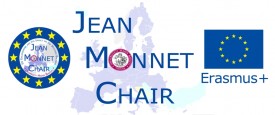While powerful private interest groups such as banks and other financial institutions, industrial groups, media etc. dispose all the necessary resources and leverage for their involvement and representation in strategic reforms and EU accession process, a number of ‘neglected’ yet extremely important interest groups are facing great challenges with regard to EU accession. In Albania latent interest representation and involvement in policy and reform processes remains weak. Furthermore, there is a literature gap in understanding their specific challenges, capacity-needs and potential to generate added-value to the EU integration process by such latent interest groups (LIG) .
This research offers a modest contribution to address such gap and to bring sensitivity among key stakeholders on the missing role of non-state interest groups under the EU accession process. The analysis relies on comprehensive literature review and field research with members of various LIG in Albania in order to gather qualitative and quantitative data. Based on gathered evidence the paper suggests a set of concrete recommendations to strengthen the involvement of Albanian latent interest groups in the EU accession process.
Lack of capacities and expertise, external donor- and project-dependency, poor to almost inexistent internal solidarity, absence of interaction and networking across and within sectors represent some of the common deficiencies with major impact on latent interest groups’ involvement in policy processes in Albania. Hence, public and media awareness raising, adhoc coalitions etc. must be combined with alternative capacity building and other tools to ensure participation in decision-making processes. Yet, in order to ensure sustainability of such actions and results LIGs need to work towards building strategic partnerships across the sector and vibrant networks with broader constituencies and representation of interest.
Institute for Democracy and Mediation, Tirana.
Dorian Jano, Besjana Kuçi and Elira Hroni (2013)
